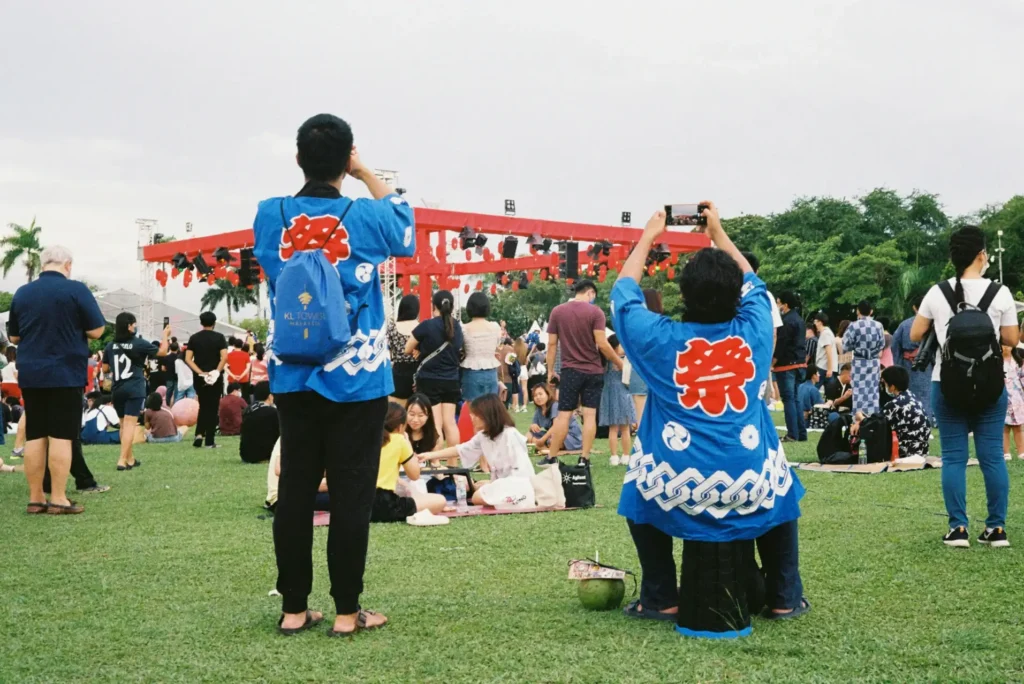The rich cultural legacy of Japan is well-known; nothing better than the energetic and distinctive traditional Japanese festivals shows this. Celebrated all year long, these events—known as matsri—often stem from centuries-old religious and cultural customs. From honoring ancestors to enjoying the changing seasons, these celebrations provide guests a window into the character of Japan. This book will walk you through seven Japanese celebrations you really cannot miss, each providing a unique and amazing experience.
7 Traditional Japanese Festivals You Can’t Miss
1. Gion Matsuri (Kyoto)
Arranged annually in Kyoto during July, Gion Matsuri is maybe the most well-known of all the traditional Japanese festivals. Celebrated for more than 1,000 years, this magnificent celebration was first carried out to satisfy the gods during an epidemic.
Gion Matsuri is most famous for its amazing parades, including enormous, finely decorated floats called yamaboko. Pulled through Kyoto’s streets, these floats bring the entire city to life with celebrations, traditional music, and religious ceremonies.
Gion Matsuri is a must-see for everyone wishing to enjoy Japanese festivals at their best; it attracts visitors from all around the globe annually.
2. Hanami (Cherry Blossom Festival)
Japan’s cherry blossom trees explode in bloom when spring arrives, heralding the beginning of Hanami, or cherry blossom watching. Celebrated as one of the most cherished traditional Japanese festivals, Hanami honors the transitory beauty of the blooming Sakura (cherry blossoms), a metaphor of the fleeting character of life.
Parks all throughout Japan draw both residents and visitors for picnics under the blossoms, where they can enjoy seasonal cuisine, beverages, and animated interactions. Lantern decorations abound in many parks and temples, enhancing the magic of nighttime Hanami celebrations.
This Japanese festival presents guests with a sensory feast and a chance to savor the small pleasures of nature while engaging in a treasured cultural event.
3. Obon (Festival of the Spirits)
One of the most significant religious events in Japan, the Obon festival falls in middle-August. Rooted in Buddhist ideas, Obon honors the souls of ancestors said to return to the world of the living during this time.
Families come to light lanterns to lead the spirits, donate food and incense, and tidy their ancestors’ graves. Additionally included in the celebration are Bon Odori, a regional folk dance with variances.
Obon is a powerful reminder of the close connection between the living and the deceased in Japanese culture, making it one of the most profound and spiritually significant traditional Japanese festivals.
4. Tanabata (Star Festival)
Inspired by a romantic folktale, Tanabata is observed on July 7th, when it is believed that once a year two star-crossed lovers, Orihime and Hikoboshi, might unite in the heavens. People pen wishes on vibrant strips of paper during Tanabata and hang them on bamboo branches.
The celebration consists of vibrant decorations, street parades, and energetic entertainment. Though every area of Japan celebrates Tanabata somewhat differently, the universal idea of optimism, love, and celestial beauty runs throughout all.
This little Japanese festival is a terrific chance to enjoy a blend of romance and legacy in Japan’s festive calendar if you’re heading early in summer.
5. Nebuta Matsuri (Aomori)
One of the most amazing Japanese summer festivals, the Nebuta Matsuri, takes place in Aomori between August 2 and 7. Taiko drums, flutes, and dancers called haneto accompany enormous illuminated floats known as nebuta as they parade the streets.
This is one of the most strikingly beautiful traditional Japanese festivals. since these finely crafted floats show gods, legendary creatures, and historical figures. Every float might take up to a year to build; it is quite remarkable to see them shining against the night sky.
A perfect illustration of how Japanese summer festivals mix art, culture, and festivity into one hypnotic event is the Nebuta Matsuri.
6. Yuki Matsuri (Sapporo Snow Festival)
Those who appreciate winter celebrations should not miss the Yuki Matsiri in Sapporo. Celebrated every February, this Japanese festival is well-known for its enormous snow and ice sculptures, which turn the city into a fantastical winter paradise.
Sculptures ranging from life-sized castles and animals to complex themes from Japanese mythology let visitors wonder. Snow slides, ice bars, and nighttime illuminations that accentuate the vivid colors of the snow also feature at the celebration.
One of the most well-known and distinctive traditional Japanese festivals, the Yuki Matsuri honors creativity and the beauty of winter.
7. Awa Odori (Tokushima)
Held in Tokushima in August, Awa Odori is another big Japanese summer festival that is vibrant in dance and song. Awa Odori, with roots going back to the 16th century, is known for its vibrant dancers who march through the streets in garish costumes accompanied by traditional instruments.
“Yatto sa, yatto sa,” the festival’s hallmark slogan, resounds through the streets as both attendees and observers are urged to join the dancing. Awa Odori captures the happy attitude of Matsri and is a community experience as much as a performance.
Awa Odori is a remarkable experience for those wishing to really sink into the vitality and rhythm of Japanese festivals.
Conclusion
From the energetic summer parades of Gion Matsiri to the quiet beauty of Hanami, these seven traditional Japanese festivals provide a window into Japan’s rich cultural fabric. There is always a Japanese festival to leave you with lifelong memories, whether your trip to Japan is in spring, summer, winter, or autumn.
These celebrations of life, nature, and the spirit of the society transcend mere events to be observed. Thus, make sure you visit at least one of these amazing traditional Japanese festivals the next time you arrange a vacation to Japan. You won’t let down!
By planning your trip around these Japanese festivals, you’re sure to experience the vibrant culture and traditions that make Japan truly unique.

